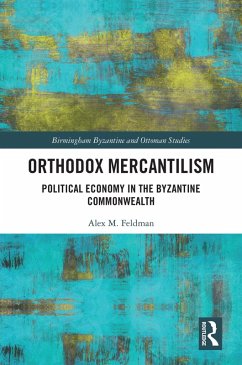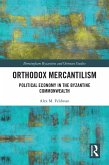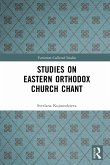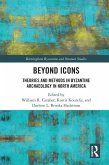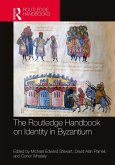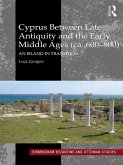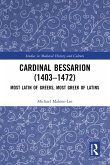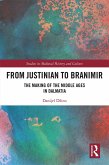41,95 €
41,95 €
inkl. MwSt.
Sofort per Download lieferbar

21 °P sammeln
41,95 €
Als Download kaufen

41,95 €
inkl. MwSt.
Sofort per Download lieferbar

21 °P sammeln
Jetzt verschenken
Alle Infos zum eBook verschenken
41,95 €
inkl. MwSt.
Sofort per Download lieferbar
Alle Infos zum eBook verschenken

21 °P sammeln
- Format: PDF
- Merkliste
- Auf die Merkliste
- Bewerten Bewerten
- Teilen
- Produkt teilen
- Produkterinnerung
- Produkterinnerung

Bitte loggen Sie sich zunächst in Ihr Kundenkonto ein oder registrieren Sie sich bei
bücher.de, um das eBook-Abo tolino select nutzen zu können.
Hier können Sie sich einloggen
Hier können Sie sich einloggen
Sie sind bereits eingeloggt. Klicken Sie auf 2. tolino select Abo, um fortzufahren.

Bitte loggen Sie sich zunächst in Ihr Kundenkonto ein oder registrieren Sie sich bei bücher.de, um das eBook-Abo tolino select nutzen zu können.
This book demonstrates how the political economy of mercantilism was not simply a Western invention by various cities and kingdoms during the Renaissance.
- Geräte: PC
- mit Kopierschutz
- eBook Hilfe
Andere Kunden interessierten sich auch für
![Orthodox Mercantilism (eBook, ePUB) Orthodox Mercantilism (eBook, ePUB)]() Alex FeldmanOrthodox Mercantilism (eBook, ePUB)41,95 €
Alex FeldmanOrthodox Mercantilism (eBook, ePUB)41,95 €![Studies on Eastern Orthodox Church Chant (eBook, PDF) Studies on Eastern Orthodox Church Chant (eBook, PDF)]() Svetlana KujumdzievaStudies on Eastern Orthodox Church Chant (eBook, PDF)41,95 €
Svetlana KujumdzievaStudies on Eastern Orthodox Church Chant (eBook, PDF)41,95 €![Beyond Icons (eBook, PDF) Beyond Icons (eBook, PDF)]() Beyond Icons (eBook, PDF)41,95 €
Beyond Icons (eBook, PDF)41,95 €![The Routledge Handbook on Identity in Byzantium (eBook, PDF) The Routledge Handbook on Identity in Byzantium (eBook, PDF)]() The Routledge Handbook on Identity in Byzantium (eBook, PDF)45,95 €
The Routledge Handbook on Identity in Byzantium (eBook, PDF)45,95 €![Cyprus between Late Antiquity and the Early Middle Ages (ca. 600¿800) (eBook, PDF) Cyprus between Late Antiquity and the Early Middle Ages (ca. 600¿800) (eBook, PDF)]() Luca ZavagnoCyprus between Late Antiquity and the Early Middle Ages (ca. 600¿800) (eBook, PDF)44,95 €
Luca ZavagnoCyprus between Late Antiquity and the Early Middle Ages (ca. 600¿800) (eBook, PDF)44,95 €![Cardinal Bessarion (1403-1472) (eBook, PDF) Cardinal Bessarion (1403-1472) (eBook, PDF)]() Michael Malone-LeeCardinal Bessarion (1403-1472) (eBook, PDF)41,95 €
Michael Malone-LeeCardinal Bessarion (1403-1472) (eBook, PDF)41,95 €![From Justinian to Branimir (eBook, PDF) From Justinian to Branimir (eBook, PDF)]() Danijel DzinoFrom Justinian to Branimir (eBook, PDF)44,95 €
Danijel DzinoFrom Justinian to Branimir (eBook, PDF)44,95 €-
-
-
This book demonstrates how the political economy of mercantilism was not simply a Western invention by various cities and kingdoms during the Renaissance.
Dieser Download kann aus rechtlichen Gründen nur mit Rechnungsadresse in A, B, BG, CY, CZ, D, DK, EW, E, FIN, F, GR, HR, H, IRL, I, LT, L, LR, M, NL, PL, P, R, S, SLO, SK ausgeliefert werden.
Produktdetails
- Produktdetails
- Verlag: Taylor & Francis eBooks
- Seitenzahl: 310
- Erscheinungstermin: 2. April 2024
- Englisch
- ISBN-13: 9781040009659
- Artikelnr.: 70035555
- Verlag: Taylor & Francis eBooks
- Seitenzahl: 310
- Erscheinungstermin: 2. April 2024
- Englisch
- ISBN-13: 9781040009659
- Artikelnr.: 70035555
- Herstellerkennzeichnung Die Herstellerinformationen sind derzeit nicht verfügbar.
Alex M. Feldman is the chair of the department of languages and literature at CIS-Endicott International University of Madrid. He received a BA from Roger Williams University of Rhode Island and received an MRes and PhD from the University of Birmingham. He has held a postdoctoral fellowship at the University of London's Warburg Institute and has taught at the Rosenbaum Yeshiva of North Jersey, the State University of New York, Rockland and the University of Birmingham.
Prologue: A zero-sum world
Pronoia: Orthodox feudalism?
Mercantilism 101
What was the "Byzantine Commonwealth"?
Byzantium: nation-state or civilization-state?
Did Byzantium generate a "commonwealth"?
How should the cumene be interpreted?
The cumene
Chapter 1: The Byzantine Commonwealth unfolds
Byzantium and the baptism of Vladimir, 986-989 - the problems of the
sources
The evidence of Cherson's involvement in the Phokas rebellion, 987-989
A reassemblage of the revisionist hypothesis, 987-989
Chapter 2
The Rus'ian metropolitanate: "proto-state" or exarchate?
Beyond Commonwealth
Byzantine Western exarchates of the 6th-8th centuries
The loyalty of the thema of Bulgaria after 1019
The metropolitanate of Rus'ia reconsidered
The Law
Chapter 3: From customary law to Christian law
The Russkaja Pravda (11th-12th centuries)
Byzantine legal influences in the expanded Russkaja Pravda
The adoption of the Zakon Sudnyj Ljudem (9th-12th centuries)
From the Zakon Sudnyj Ljudem to the Korm¿aja Kniga
Chapter 4
Overlapping sovereignties: Empire, commonwealth and jurisdiction
Orthodox tax, debt and property law to the 13th century
Orthodox tax, debt and property law since the 13th century
The Coin
Chapter 5: The hoarding period: Eastern Europe, 11th-14th centuries
Bullion, deniers and debasement
Barter, debt and law
Imagined borders
Chapter 6: Sovereignty and bullion: 13-17th centuries
Coins of the Romanía dynasties
Coins of the cumene dynasties
Epilogue: Cycles of Divergence and convergence
Misconceptions of feudalism and mercantilism
The misconception that Roman laws and feudal laws have been different
The misconception that feudalism has been exclusive to Latin Christendom
The misconception that feudalism and mercantilism have been mutually
exclusive economic systems
The contested inheritance of Byzantium's political economy and rhetoric
Orthodox ecumenism
Rex Catholicissimus, the Spains and "The Powerful Mr. Money"
Pravoslavie, the Russias and "The Artery of War - Money"
The Great Divergence?
Ecumenical sovereignty and the national idea
Liberal interpretations of zero-sum economic history
Bibliography
Primary Sources
Secondary Sources
Index
Pronoia: Orthodox feudalism?
Mercantilism 101
What was the "Byzantine Commonwealth"?
Byzantium: nation-state or civilization-state?
Did Byzantium generate a "commonwealth"?
How should the cumene be interpreted?
The cumene
Chapter 1: The Byzantine Commonwealth unfolds
Byzantium and the baptism of Vladimir, 986-989 - the problems of the
sources
The evidence of Cherson's involvement in the Phokas rebellion, 987-989
A reassemblage of the revisionist hypothesis, 987-989
Chapter 2
The Rus'ian metropolitanate: "proto-state" or exarchate?
Beyond Commonwealth
Byzantine Western exarchates of the 6th-8th centuries
The loyalty of the thema of Bulgaria after 1019
The metropolitanate of Rus'ia reconsidered
The Law
Chapter 3: From customary law to Christian law
The Russkaja Pravda (11th-12th centuries)
Byzantine legal influences in the expanded Russkaja Pravda
The adoption of the Zakon Sudnyj Ljudem (9th-12th centuries)
From the Zakon Sudnyj Ljudem to the Korm¿aja Kniga
Chapter 4
Overlapping sovereignties: Empire, commonwealth and jurisdiction
Orthodox tax, debt and property law to the 13th century
Orthodox tax, debt and property law since the 13th century
The Coin
Chapter 5: The hoarding period: Eastern Europe, 11th-14th centuries
Bullion, deniers and debasement
Barter, debt and law
Imagined borders
Chapter 6: Sovereignty and bullion: 13-17th centuries
Coins of the Romanía dynasties
Coins of the cumene dynasties
Epilogue: Cycles of Divergence and convergence
Misconceptions of feudalism and mercantilism
The misconception that Roman laws and feudal laws have been different
The misconception that feudalism has been exclusive to Latin Christendom
The misconception that feudalism and mercantilism have been mutually
exclusive economic systems
The contested inheritance of Byzantium's political economy and rhetoric
Orthodox ecumenism
Rex Catholicissimus, the Spains and "The Powerful Mr. Money"
Pravoslavie, the Russias and "The Artery of War - Money"
The Great Divergence?
Ecumenical sovereignty and the national idea
Liberal interpretations of zero-sum economic history
Bibliography
Primary Sources
Secondary Sources
Index
Prologue: A zero-sum world
Pronoia: Orthodox feudalism?
Mercantilism 101
What was the "Byzantine Commonwealth"?
Byzantium: nation-state or civilization-state?
Did Byzantium generate a "commonwealth"?
How should the cumene be interpreted?
The cumene
Chapter 1: The Byzantine Commonwealth unfolds
Byzantium and the baptism of Vladimir, 986-989 - the problems of the
sources
The evidence of Cherson's involvement in the Phokas rebellion, 987-989
A reassemblage of the revisionist hypothesis, 987-989
Chapter 2
The Rus'ian metropolitanate: "proto-state" or exarchate?
Beyond Commonwealth
Byzantine Western exarchates of the 6th-8th centuries
The loyalty of the thema of Bulgaria after 1019
The metropolitanate of Rus'ia reconsidered
The Law
Chapter 3: From customary law to Christian law
The Russkaja Pravda (11th-12th centuries)
Byzantine legal influences in the expanded Russkaja Pravda
The adoption of the Zakon Sudnyj Ljudem (9th-12th centuries)
From the Zakon Sudnyj Ljudem to the Korm¿aja Kniga
Chapter 4
Overlapping sovereignties: Empire, commonwealth and jurisdiction
Orthodox tax, debt and property law to the 13th century
Orthodox tax, debt and property law since the 13th century
The Coin
Chapter 5: The hoarding period: Eastern Europe, 11th-14th centuries
Bullion, deniers and debasement
Barter, debt and law
Imagined borders
Chapter 6: Sovereignty and bullion: 13-17th centuries
Coins of the Romanía dynasties
Coins of the cumene dynasties
Epilogue: Cycles of Divergence and convergence
Misconceptions of feudalism and mercantilism
The misconception that Roman laws and feudal laws have been different
The misconception that feudalism has been exclusive to Latin Christendom
The misconception that feudalism and mercantilism have been mutually
exclusive economic systems
The contested inheritance of Byzantium's political economy and rhetoric
Orthodox ecumenism
Rex Catholicissimus, the Spains and "The Powerful Mr. Money"
Pravoslavie, the Russias and "The Artery of War - Money"
The Great Divergence?
Ecumenical sovereignty and the national idea
Liberal interpretations of zero-sum economic history
Bibliography
Primary Sources
Secondary Sources
Index
Pronoia: Orthodox feudalism?
Mercantilism 101
What was the "Byzantine Commonwealth"?
Byzantium: nation-state or civilization-state?
Did Byzantium generate a "commonwealth"?
How should the cumene be interpreted?
The cumene
Chapter 1: The Byzantine Commonwealth unfolds
Byzantium and the baptism of Vladimir, 986-989 - the problems of the
sources
The evidence of Cherson's involvement in the Phokas rebellion, 987-989
A reassemblage of the revisionist hypothesis, 987-989
Chapter 2
The Rus'ian metropolitanate: "proto-state" or exarchate?
Beyond Commonwealth
Byzantine Western exarchates of the 6th-8th centuries
The loyalty of the thema of Bulgaria after 1019
The metropolitanate of Rus'ia reconsidered
The Law
Chapter 3: From customary law to Christian law
The Russkaja Pravda (11th-12th centuries)
Byzantine legal influences in the expanded Russkaja Pravda
The adoption of the Zakon Sudnyj Ljudem (9th-12th centuries)
From the Zakon Sudnyj Ljudem to the Korm¿aja Kniga
Chapter 4
Overlapping sovereignties: Empire, commonwealth and jurisdiction
Orthodox tax, debt and property law to the 13th century
Orthodox tax, debt and property law since the 13th century
The Coin
Chapter 5: The hoarding period: Eastern Europe, 11th-14th centuries
Bullion, deniers and debasement
Barter, debt and law
Imagined borders
Chapter 6: Sovereignty and bullion: 13-17th centuries
Coins of the Romanía dynasties
Coins of the cumene dynasties
Epilogue: Cycles of Divergence and convergence
Misconceptions of feudalism and mercantilism
The misconception that Roman laws and feudal laws have been different
The misconception that feudalism has been exclusive to Latin Christendom
The misconception that feudalism and mercantilism have been mutually
exclusive economic systems
The contested inheritance of Byzantium's political economy and rhetoric
Orthodox ecumenism
Rex Catholicissimus, the Spains and "The Powerful Mr. Money"
Pravoslavie, the Russias and "The Artery of War - Money"
The Great Divergence?
Ecumenical sovereignty and the national idea
Liberal interpretations of zero-sum economic history
Bibliography
Primary Sources
Secondary Sources
Index
